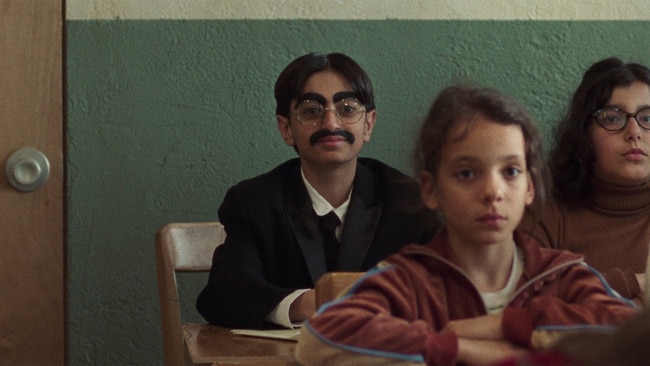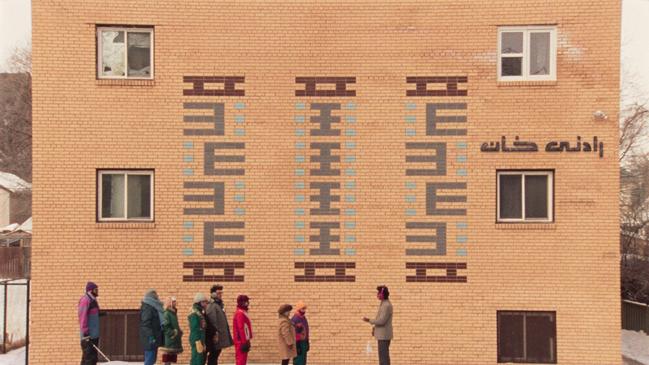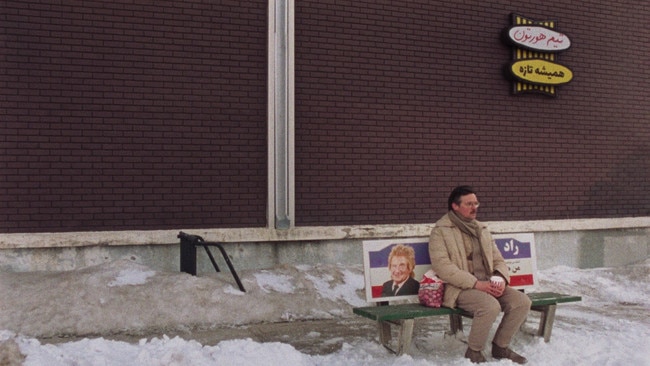Universal Language review: Decidedly odd – but oddly tender
Imagine if Donald Trump took over Canada and then sold it to Iran. That’s sort of the setting for this unconventional alternate reality drama-comedy.

Universal Language (G)
In Farsi and French with English subtitles
89 minutes
In cinemas
★★★
Imagine if Donald Trump took over Canada and then sold it to Iran. That’s sort of the setting for the alternate reality drama-comedy Universal Language, the second movie by Canadian experimental filmmaker Matthew Rankin, following the surrealist The Twentieth Century in 2019.
The main setting is wintry Winnipeg, Manitoba. Canada’s main language is Farsi, though French is still taught in schools. The street signs and the shop fronts are all written in the Persian script. In this Winnipeg, most of the buildings are geometric, bland and beige. Trees are cut down to protect the view of the brickwork.
The plot centres on three main stories, each of which gradually interconnects, sometimes sadly, sometimes beautifully, always surprisingly.

The cinematography (Isabelle Stachtchenko) is deliberately askew. The strange assortment of characters are rarely in the centre of the shot. We often see them from a distance, or not at all. The result is artistic to look at yet feels realistic at the same time.
What’s it about? Well, it’s an absurdist film so take your pick. Turkeys feature prominently, as do Kleenex tissues and walnuts. There’s a man who walks through the snow dressed as a Christmas tree. My guess, though, is that it’s about the importance and value of human connection.
The triptych is: two school-age sisters (Rojina Esmaeili and Saba Vahedyousefi) find a high value note frozen in the ice and need to crack it out so they can buy new spectacles for a classmate who claims his were stolen by a turkey; a freelance tour guide (Pirouz Nemati, who wrote the script with the director) takes a group through the non-spectacular sites of Winnipeg; and a government worker (the director Rankin) quits his job in Montreal, Quebec, to return to Winnipeg to see his elderly mother.

The scene where the government worker meets his boss at the ministry is a good example of the filmmaker’s style. Centre of the shot is an empty space. To the left the worker and his boss sit at a table; to the right a man we cannot quite see weeps in a cubicle.
Two other scenes: in a dreamlike sequence the unhappy government worker revisits his mother’s home and sees, perhaps, an intimation of his own happy childhood; a woman on a bus complains that a turkey is sitting next to her. She tells the driver her sons “choked to death in a marshmallow eating contest”, and now she has to tolerate this avian intrusion. The driver tells her the turkey has a ticket. Both are odd; one is heartwarming, the other funny.
This is an unconventional film that slowly drew me in.
There’s a tenderness about it as the boundaries between the characters loosen. It opens with the line, “In the name of friendship”. When a woman in the tour group complains to the guide that he has brought them to see a fountain that does not work, he replies, “Perhaps I brought you here in hope.” He is looking with his heart, not his eyes, and I understand that feeling.





To join the conversation, please log in. Don't have an account? Register
Join the conversation, you are commenting as Logout